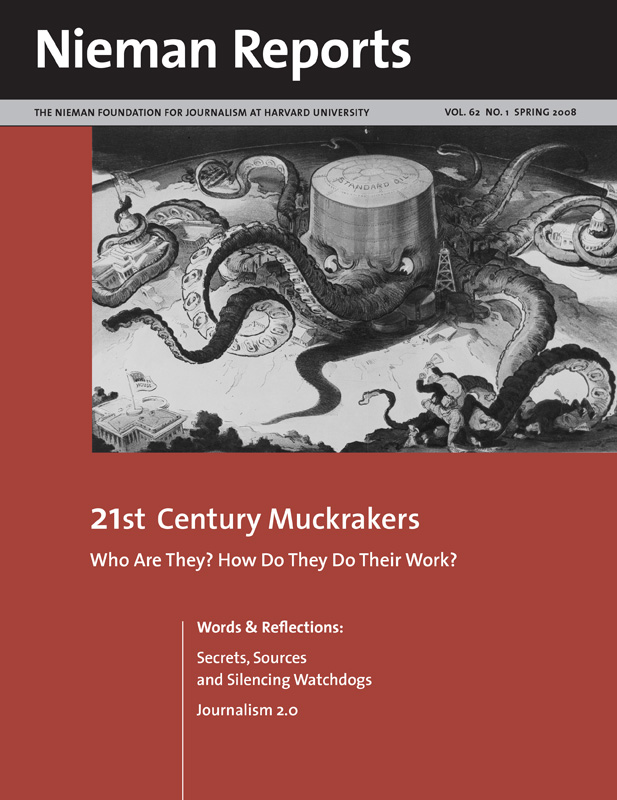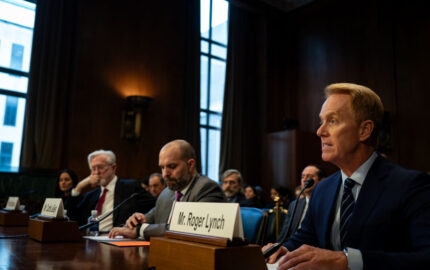RELATED ARTICLE
“Digital Journalism: Will It Work for Investigative Journalism?”
– Barry SussmanWith complicated stories, a problem for reporters and editors always has been to wade through mounds of disinformation to get to the facts.
Today the problem is even worse. There is an entire disinformation industry, consisting of corporate-funded think tanks, phony grassroots groups, co-opted citizens organizations, experts for hire, fake news and fake reporters, government officials on all levels who lie and promote disinformation, and a presidential administration that has worked to discredit the press and make it irrelevant. Nor has the Web been spared, as digital disinformation proliferates.
RELATED WEB LINKS
“Investigative Reporters and Editors”
– www.ire.org
“Project for Excellence in Journalism”
– www.journalism.org
“Full Frontal Scrutiny”
– www.frontgroups.orgBut the Internet also provides journalists with some online resources to help journalists sort what is real and solid from what is fake and disingenuous. A couple of good ones, among others, are the Web sites of Investigative Reporters and Editors (www.ire.org) and the Project for Excellence in Journalism (www.journalism.org). And there is a new Web site—www.frontgroups.org—aimed directly at this disinformation problem. It is put out by Consumers Union and the Center for Media and Democracy with the stated goal of exposing “the people and organizations who function in our society as hidden persuaders. You’ll find them at work posting to blogs, speaking before city councils, quoted in newspapers and published on the editorial page, even sponsoring presidential election debates. All this while pretending to represent the grassroots when in fact they are working against citizens’ best interests.”
The disinformation industry is huge and well entrenched. Reporters need all the help they can get. —B.S.
“Digital Journalism: Will It Work for Investigative Journalism?”
– Barry SussmanWith complicated stories, a problem for reporters and editors always has been to wade through mounds of disinformation to get to the facts.
Today the problem is even worse. There is an entire disinformation industry, consisting of corporate-funded think tanks, phony grassroots groups, co-opted citizens organizations, experts for hire, fake news and fake reporters, government officials on all levels who lie and promote disinformation, and a presidential administration that has worked to discredit the press and make it irrelevant. Nor has the Web been spared, as digital disinformation proliferates.
RELATED WEB LINKS
“Investigative Reporters and Editors”
– www.ire.org
“Project for Excellence in Journalism”
– www.journalism.org
“Full Frontal Scrutiny”
– www.frontgroups.orgBut the Internet also provides journalists with some online resources to help journalists sort what is real and solid from what is fake and disingenuous. A couple of good ones, among others, are the Web sites of Investigative Reporters and Editors (www.ire.org) and the Project for Excellence in Journalism (www.journalism.org). And there is a new Web site—www.frontgroups.org—aimed directly at this disinformation problem. It is put out by Consumers Union and the Center for Media and Democracy with the stated goal of exposing “the people and organizations who function in our society as hidden persuaders. You’ll find them at work posting to blogs, speaking before city councils, quoted in newspapers and published on the editorial page, even sponsoring presidential election debates. All this while pretending to represent the grassroots when in fact they are working against citizens’ best interests.”
The disinformation industry is huge and well entrenched. Reporters need all the help they can get. —B.S.



